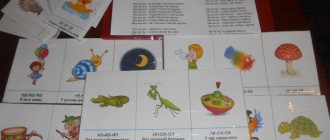The main role in raising young children, without any doubt, belongs to parents. However, most specialist teachers believe that it is not worth limiting ourselves to home development only. In the formation of a child, the experience of socialization and communication with peers and other adults (educators, psychologists, nannies) is of great importance. In kindergartens and various specialized centers they not only provide the necessary knowledge, but also develop abilities by conducting trainings for preschool children.
Specifics
Each child has his own unique character: some are open and relaxed, others are secretive and withdrawn, some master the material easily, while others need to make great efforts. However, regardless of the initial conditions, many preschoolers require outside support for self-realization, establishing communication with peers, and increasing self-esteem. For this purpose, they most often use such an effective tool as training, based on a number of psychotherapeutic and psychocorrective techniques.
Experts recommend enrolling children who have one or more of the following symptoms for training: hyperactivity, shyness, aggressiveness, anxiety, slowness, inattention. Depending on the tasks set and the category of children participating in the classes, various types of training are distinguished:
- intellectual and sensory activities;
- trainings on communication with other children, interpersonal and intergroup interaction;
- school preparation trainings;
- exercises to develop attention and memory;
- psychological trainings;
- classes to develop safe behavior;
- exercises for the development of the emotional sphere.
When drawing up programs and organizing trainings, one should not forget about the developmental characteristics of preschool children. The crisis of 3 years becomes the cause of protest, stubbornness, self-will and obstinacy, and the crisis of 7 years leads to loss of spontaneity, loss of previous interests and the appearance of secrecy in feelings. All this should be taken into account by educators and psychologists when forming training groups and conducting classes.
Content Examples
Each trainer builds training in his own way, depending on the number of participants and the desired result. During classes, facilitators use different elements, which they use as puzzles to create an overall picture:
- psycho-gymnastics helps to distinguish between emotions, develops acting abilities, teaches the child to be relaxed and able to feel the state of another person;
- role-playing games reproduce the actions of various heroes or adults, they provide an opportunity to learn how to effectively interact with other children and adults, and establish relationships in a team;
- outdoor games are used to switch between exercises and relax during active mental activity; they also teach children to act according to established rules;
- finger games develop fine motor skills, strengthen finger muscles and relieve tension;
- art therapeutic exercises are aimed at developing a creative approach to business, talent, and provide an outlet for creative energy;
- Relaxation is used to relax after outdoor games and active activities, and is used to teach the ability to relax.
In some games, all children act simultaneously to bond and develop partnerships, in others they are divided into teams, which allows them to compare their skills with the skills of other participants. All these exercises are aimed at acquiring game interaction skills, revealing positive character traits, the ability to get out of problematic situations, correcting behavioral stereotypes and developing a positive self-concept.
Games for teenagers
Exercise “Map of my life”
This exercise lasts about half an hour. The children are given sheets of paper on which they need to draw their entire life path. Teenagers need to remember all the important and key points and display them in the picture. They need to draw everything that comes to their mind, starting from the moment of birth. Later, the guys must present their drawing to the whole group and tell what they consider necessary. It takes about 15 minutes to make a card.
Mini-game "Lucky Scale"
This exercise only lasts a few minutes. The presenter invites the children to evaluate their lives. 10 points means that the teenager’s life is happy and carefree, he doesn’t want to change anything and is happy with everything. 1 is given by those guys who are not at all happy with their lives and want to make a lot of changes.
The assessment must be announced to the whole group of children and justified. Other guys may ask questions on the topic and you must give a detailed answer to them.
The game can be taken in a slightly different direction. The guys can announce their marks, and then take turns telling about happy and sad stories from their lives.
Game "Mom and Daughter"
This game is quite unique, because the guys will have to touch each other. Here it is extremely important that the teacher explains to the children the role of skin-to-skin contact and touching.
We divide the children into pairs and in each pair we determine the role of the child and the role of the parent. Then, for 2-3 minutes, each “parent” should show a variety of feelings towards their child through touch. You can also use words. Afterwards the guys change roles and start playing again. When the game is over, the guys can share their feelings and decide which role they liked to play.
Game "We are alike"
This exercise takes about half an hour. And this game has 2 options.
- The guys begin to walk around the room and every time they encounter someone, they must note how they are similar to each other.
- Or you can divide all participants into pairs. For the first 5 minutes in each pair, the guys discuss how they are similar, and then talk about their differences.
Finish the game with a summary. The teacher should help the children come to the conclusion that all people are alike, but at the same time we are all different.
Game "Joys of Life"
This game should encourage children to remember all the good things that happened to them in life. The exercise seems to focus the teenager’s attention only on the positive aspects. The children also learn to work in a team and cooperate.
The teacher divides the children into groups of 3 people. Each group of teenagers receives a picture depicting some area of life. The guys come up with some kind of story based on this picture. And then they move on to the next image and continue the story. When all the pictures are described, the game can be completed. About 5 minutes are given to describe each image.
The guys can discuss the resulting stories. In total, the game will take about an hour and a half.
Exercise "What if..."
This exercise should encourage children to discuss their own emotions and feelings. Children also learn to build cause-and-effect relationships. In addition, schoolchildren learn how to behave correctly in a given situation.
- Place the cards with the beginning of the stories on the table. Players take out cards and come up with a continuation of the story. The guys say each story out loud and then discuss it.
- With the same cards, the guys dramatize what in the first case they would have told in words. That is, a group of guys takes out a card and shows with their actions the continuation of the story.
- Another interesting option is to invite each participant to draw a card with the beginning of a sentence, and they must give a short answer and complete the sentence. Examples of sentences could be the following:
- if I fell in love/fell in love, then...
- if I'm sad then...
- if I want something, then...
- If I'm scared, then...
- if I see an alien, then...
- if I quarrel with a friend/friend, then...
- If I'm interested in something, then...
- If I have nothing to do, then...
- If I'm late for something, then...
- if I'm cold, then...
- If I don't want to sleep at night, then...
- if my boyfriend/girlfriend leaves me, then...
- if my loved one dies...
There can be an endless number of such questions. There is no need to be afraid to write negative conditions, because anything can happen in life, and every person should be prepared for troubles. Psychologists say that such trainings help teenagers avoid rash actions.
Game "Kingdom"
At the beginning of the game, the participants choose a king for themselves, and then he appoints a queen for himself. This pair chooses 1 assistant, and each assistant chooses another assistant. So the participants choose their roles until each of the guys is busy.
Next, the king and queen give orders to change something in their kingdom so that life here becomes better. Their order is passed from assistant to assistant in the order of the created hierarchy. Each of the assistants takes on some obligations to carry out the king’s orders. Throughout the game, the teenagers discuss how their lives will change when the order is carried out.
Then we change roles and repeat the game. Every teenager should experience each role and share their impressions.
What does this game give us? A teenager tries on different social roles and understands what responsibility he bears for a particular action or inaction. This game also helps identify leaders. Continue the game for no more than an hour so that the participants do not get bored.
Game "Determination"
This game lasts about 20-30 minutes. One of the teenagers leaves the class, and the other guys make a wish for one of the remaining ones. The teenager, who had previously left the class, comes back and asks 5 questions to figure out the mystery. The guys only say adjectives that describe the mystery. In the game, each participant must leave the classroom to guess who their comrades guessed.
Top trainings
Trainings for preschool children are most often carried out in kindergartens or private early childhood development institutions and family centers. Many projects can be found on web portals for teachers. This makes it possible to regularly update the lesson plan with children and make it more interesting. Let's take a closer look at some popular options.
| Organizer | Form of study | Short description | Price |
| Project “Psychoanalysis, psychology, pedagogy” | In person | The training for children of senior preschool age “My Inner World” was developed by the teacher of MBDOU kindergarten No. 84 “Dandelion” Anastasia Lazareva. It is aimed at expanding children's knowledge about their emotional state, inner world and helps improve relationships between children. Classes are conducted for children 6-7 years old in groups of 10-12 people. The duration of each lesson is 40-45 minutes. First, you need to establish the rules and rituals of the group (greeting and farewell), interview the children about their mood, talk about the training, and only then move on to the exercises. At the end, it is necessary to reflect on the training, find out from the children what they liked and what they didn’t, and what they learned new for themselves. | For free |
| Educational portal "Knowledge" | Online | Educational psychologist N.B. Murushkina developed a training for older preschoolers “I am very good.” Its goal is to reduce the level of shyness and anxiety, build self-confidence, and improve child-parent and communication relationships. The duration of each lesson is 25-35 minutes, during which time the teacher or psychologist manages to organize five full-fledged exercises. After the training, participants will learn to listen to their interlocutor, address him, look him in the eye, and express their feelings and thoughts. Children are also taught techniques for relieving muscle tension and relaxation, and develop a positive attitude towards themselves and their peers. Each lesson ends with feedback. | For free |
| Project Pandia.ru | Online | After the release of the Federal State Educational Standard for Preschool Education, the team of authors developed “Sensory and intellectual training “Academy of Smart Guys”.” Various cultural practices in kindergartens are usually carried out in the afternoon in a teacher-created atmosphere of cooperation, self-expression and freedom of choice. The training is held once a week throughout the year and is a system of game-based tasks. They are aimed at developing a system of intellectual activity (the ability to classify according to one or another attribute, compare, systematize), sensory standards (spatial relationship, shape, color). Classes are held in the form of a team game, and at the end of the year all participants receive diplomas. | For free |
| Lotoshinsky Center for Social Assistance to Family and Children (Moscow Region) | In person | The center organizes a number of psychological trainings for preschool children, designed primarily to develop communication skills and group cohesion. Psychologists and teachers use various types of training to develop in children certain skills, abilities and qualities, patterns of behavior and ways of thinking, and psychological attitudes. All classes are interactive and include interesting exercises and exciting games, which contributes to the development of teamwork and cooperation skills between children. Such activities increase the child’s social status and build self-confidence. | For free |
| Educational (Ekaterinburg) | In person | The center has been providing services for children of all ages and their parents for more than 20 years. The course "Neurohedgehogs" is intended for children 4-6 years old. It is designed for 4 months, 30 group lessons and 1 individual meeting. Classes are held twice a week and last one hour, the main exercises are aimed at developing fine and gross motor skills. The group includes 8 children who are overly active or, conversely, slow, have speech and memory impairments, are absent-minded and inattentive. Before enrollment, the child must undergo neuropsychological diagnostics. Depending on age characteristics, needs and developmental goals, topics may vary and change. | 27,200 rubles, can be paid in two or four installments |
| Training and Consulting Center “12 Collegiums” (St. Petersburg) | In person | At the center, parents of preschoolers can find training for children of all ages. There are early development groups “I’m growing!” for participants 2-5 and 5-6 years old. The course “ADHD: communication and self-regulation” is designed for hyperactive and socially maladjusted children. They also propose to develop children's creative thinking and imagination using TRIZ methods. Trainings include creative tasks, games and ritual exercises. They are aimed at expanding horizons, developing fine motor skills, training communication skills, developing memory and attention. In addition, the center has a parents' club. | From 400 to 2000 rubles depending on the program, there is a trial lesson |
Thus, if parents see that there are certain difficulties in the development of their children, in particular related to communication, they should look for a center that organizes a variety of trainings for preschoolers. In addition, you can draw the attention of kindergarten teachers to such a simple but effective tool for revealing the abilities of children.
Author: Sergey Pasternak
Trainings for preschoolers
Preschoolers love to play such games, but their attention is rather scattered. The teacher should conduct at least 3 training games in one lesson. But every game should have a specific goal.
Exercise “The Dragon Who Bit Its Tail”
To play this game, it is better to turn on funny music. The children stand in a line one after another and place their hands on the shoulders of the child standing in front. The baby who stands in front (Drakosha's head) tries to catch the one who stands behind (Drakosha's tail). This “tail” should try to dodge the “head”.
This exercise will help preschoolers get rid of their fears and relieve nervous tension.
Game "I am your friend"
This game teaches children to empathize, help each other and develop a sense of empathy.
The point of the game is for the teacher to introduce a new friend to the children. It could be some kind of animal or even a toy. You can take a teddy bear and make up a short story. For example, “this little bear went for a walk in the forest and got lost. Now he doesn’t know how to get home and he’s very sad...” Next, give the teddy bear to the child so that he can tell him something nice, take pity on him and support him. Then pass the toy to the next child and so on in a circle. Motivate the children to tell the bear that no one will hurt him, that he is among friends and that soon he will go home to mom and dad.
“What are you, Blob?”
Children love creativity very much. This is both the development of imagination and a surge of energy. And through creative tasks you can help your child get rid of aggression and fears.
Place a sheet of white paper, gouache paints and brushes in front of the child. Give your child the opportunity to choose the color he likes best. Many psychologists draw conclusions about the psychological state of the child. If the baby chooses dark shades, it means he is depressed and something is gnawing at him. Let your child dip the brush into the gouache and then spray it onto a clean sheet of paper. If your child wants to color this blot a little, let him. Then fold the piece of paper so that the design is printed on the other side. Now invite your child to fantasize and ask what or who he sees.
Exercise “Control your emotions”
It is extremely important to teach your child to cope with negative emotions. There are certain psychological trainings that do an excellent job of this task.
Remind your child often that when he is angry or wants to hit someone, he should stop, inhale and exhale, close his eyes, count to 10, smile and open his eyes. Calmness will drive away anger and any irritation.
Tell your children that they will become truly adults when they learn to manage their emotions.
Trainings for primary school students
Psychological training for primary school children is extremely important. Such games and exercises help the child cope with internal problems. Over time, the child gets used to it and can control them independently.
Children 7-9 years old are recommended to do:
- acting technique
- relax
- diagnostic techniques
- art therapy
- role-playing games
Exercises of this kind simulate various situations that a child faces and help him consider different ways of behavior.
Exercise "Barometer"
Before starting the exercise, the teacher should introduce the children to a real barometer. Tell the kids why they use it and offer to measure their mood. If the baby clenches his palms tightly, it means he is in a bad mood today; and if the palms are wide open, then the child feels great.
Game "What do you like to do"
Children love this kind of games very much. They are very useful and quite interesting. Children learn something new about each other. The essence of the game is that the child shows other children what he likes to do in his free time. In this case, you cannot use words, but everything must be shown with gestures. As soon as one of the children guesses what the first child likes to do, the next one takes his place and tells with gestures about his hobbies.
Game "I like.."
All children sit in a circle. The one of the children who starts the game turns to the neighbor on the left and says the phrase: “I like...”, and then the child should give some kind of compliment. For example, you can say how beautiful your eyes, hair, hands are, praise your sense of humor, or say how friendly your friend is.
Game "Two Rivers"
Let the children line up in one column and now they are a big river. This river spills into two small rivers. The teacher should place two children at the beginning of the river on opposite sides. The rest of the kids should take turns, either behind the first kid or the next one. In this way, children learn to create subgroups.
Game “Make Princess Nesmeyana Laugh”
All the guys sit near the wall, and a chair is placed in front of them. One of the children sits on a chair. Now he is Princess Nesmeyana. The other children must make the Princess laugh by talking about her virtues. Each child takes turns saying something unusual, kind and funny to the Princess. As soon as the Princess smiles, the next child takes her place on the chair.
Exercise “Support me”
All the guys stand in a circle. One of the guys stands in the center of the circle. The teacher should explain to the children that the one who stands in the center keeps his back straight and his legs together. The guys around him stretch out their arms in front of them and prepare to catch the one standing in the center. It is important that there is a distance of 20-30 cm from the hands to the baby in the center. As soon as the baby in the center begins to fall in any direction, the guys must catch him and put him in his place. The point of the exercise is to teach the child to trust others, and the children in the circle must live up to the expectation and catch the falling one.
Game "Warmth of Good"
All the guys stand in a circle and take each other’s hands. The point is that each participant conveys warmth to another child standing next to him through a light handshake. When the game begins, the first child lightly shakes hands with the neighbor on the left, who shakes hands with the neighbor on the left, and so on down the chain. When the last participant shakes hands with the one who started the game, you can close everyone's eyes and start the game again.




